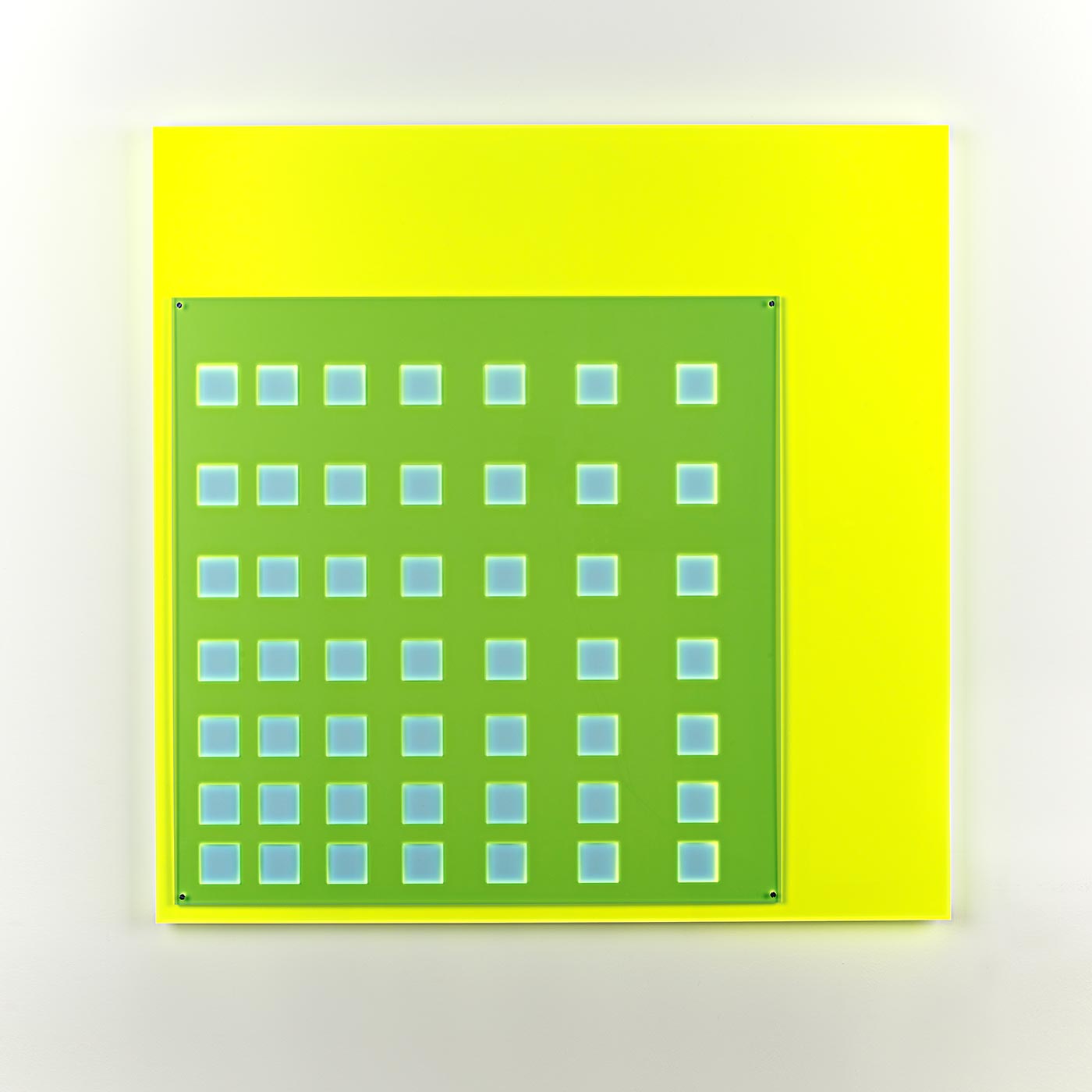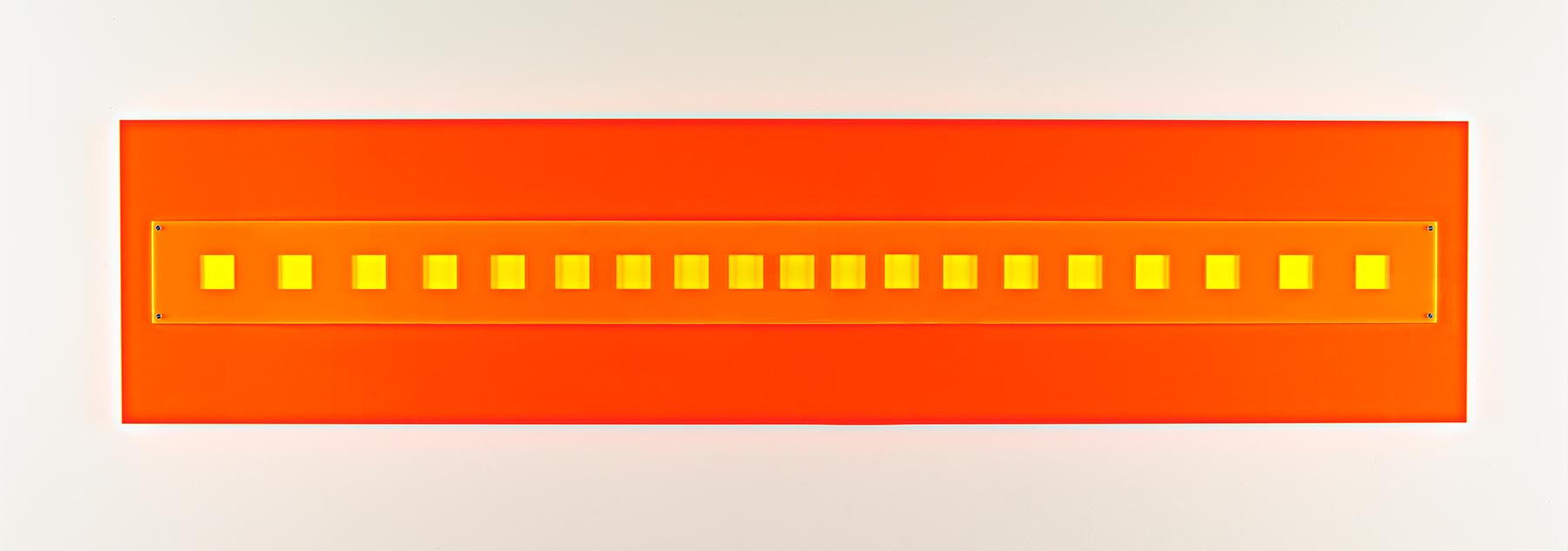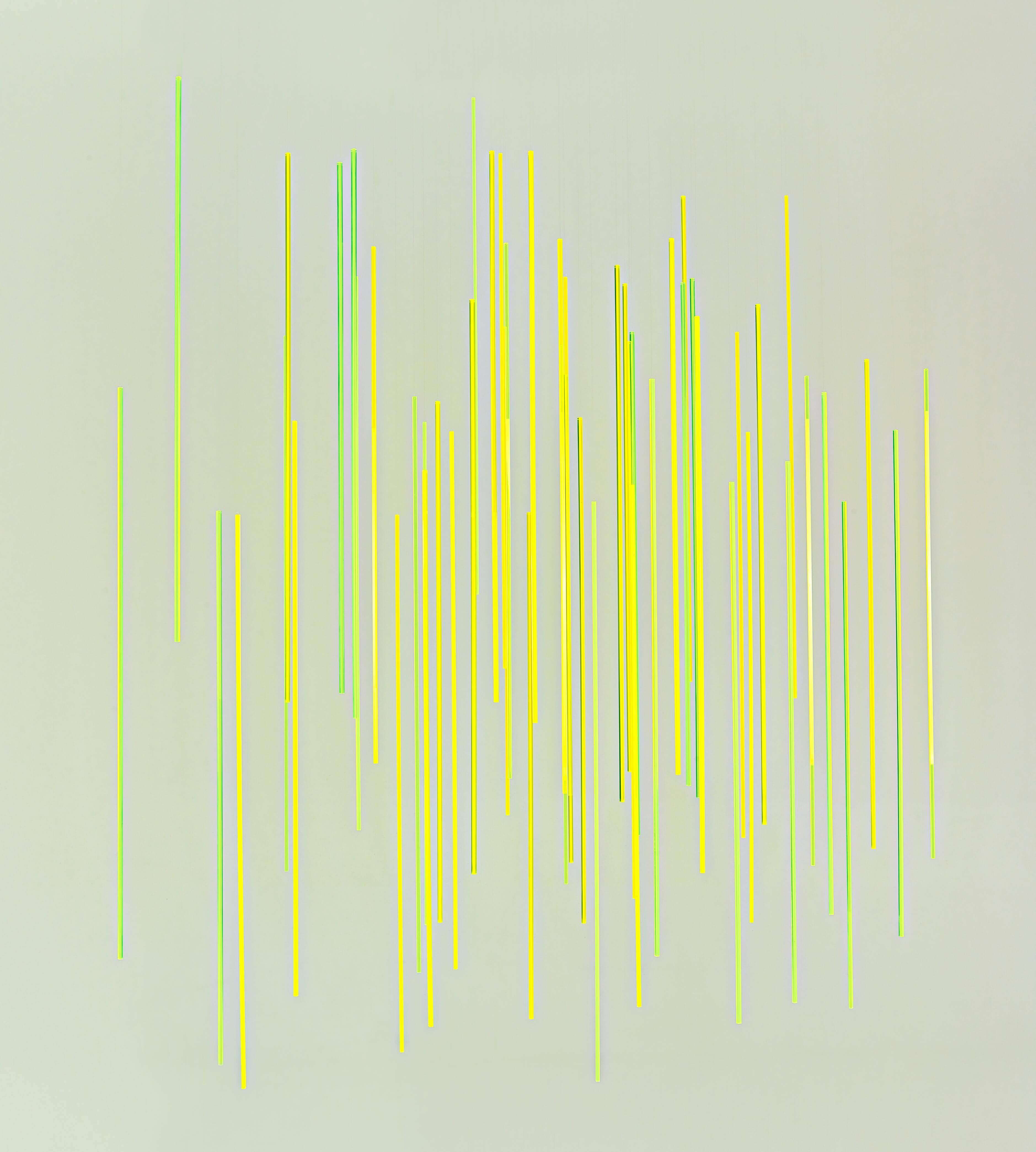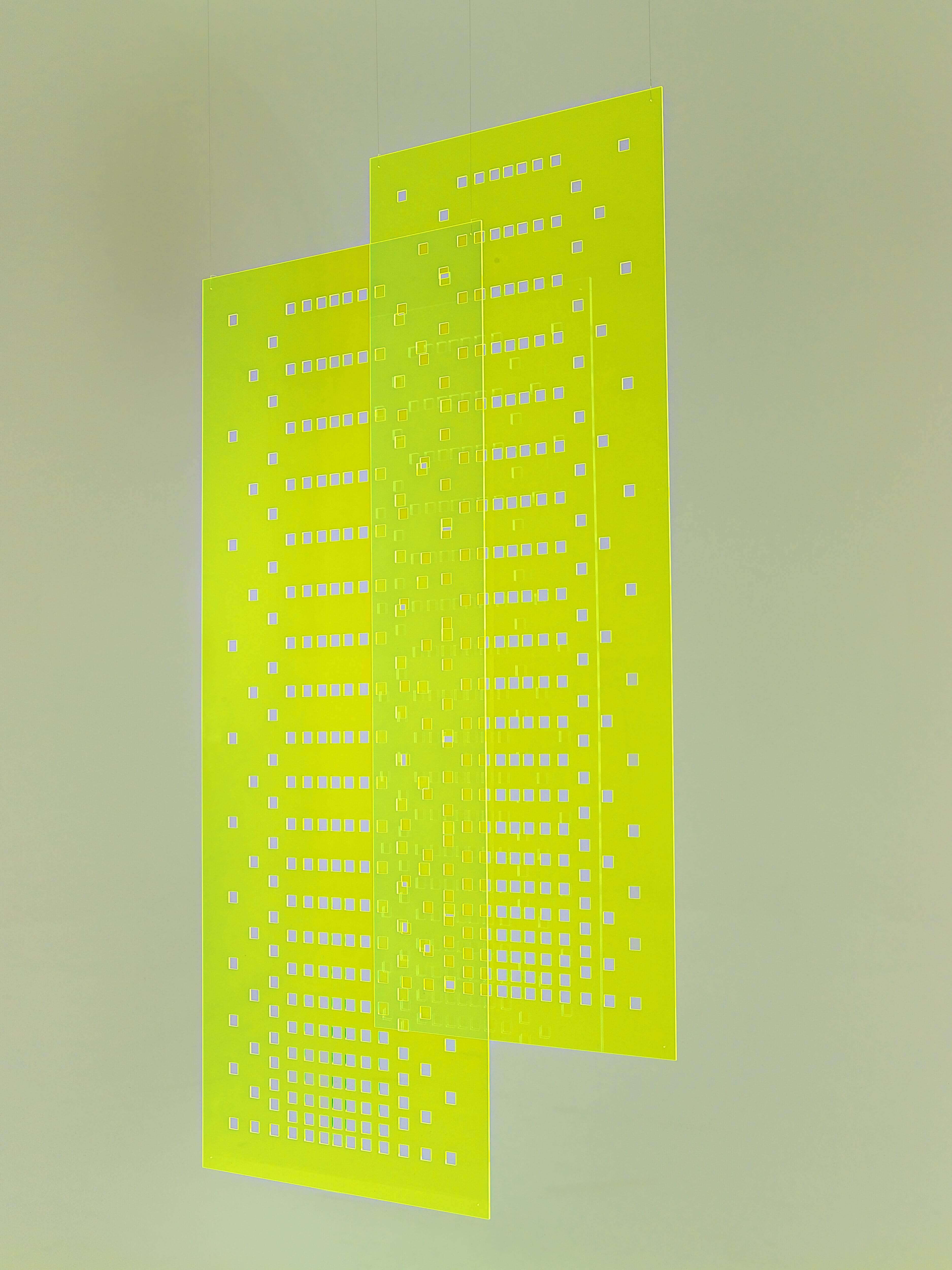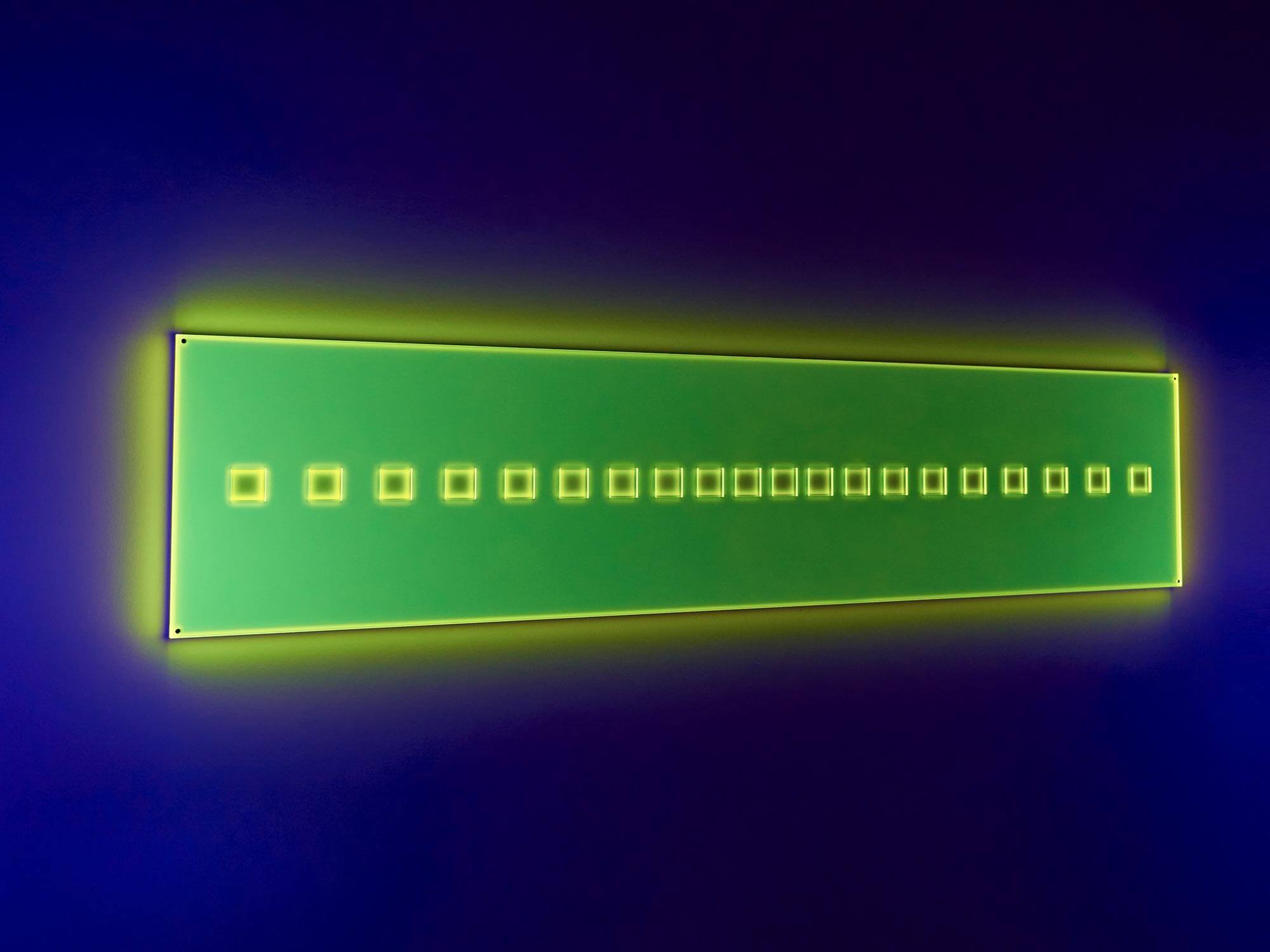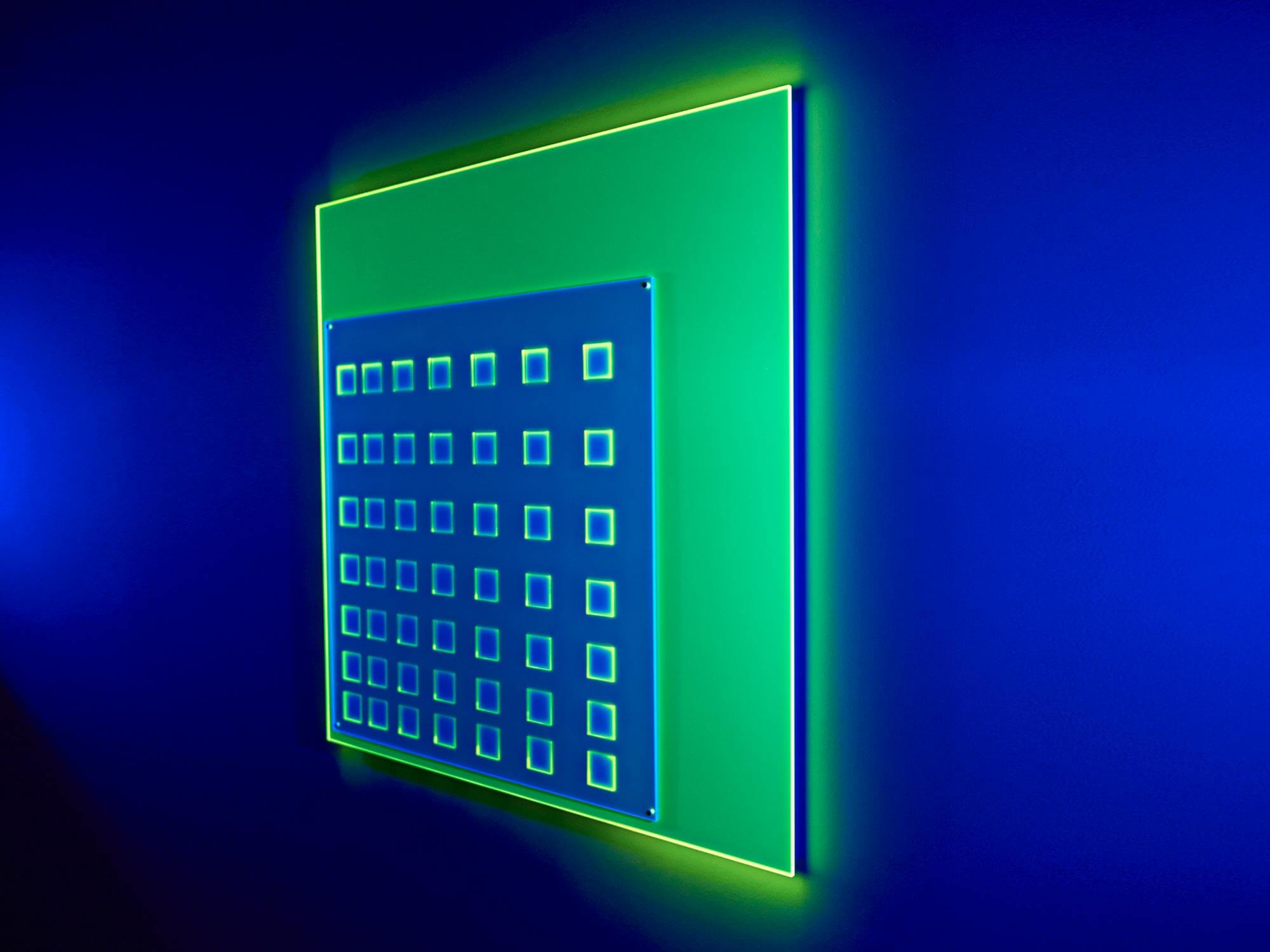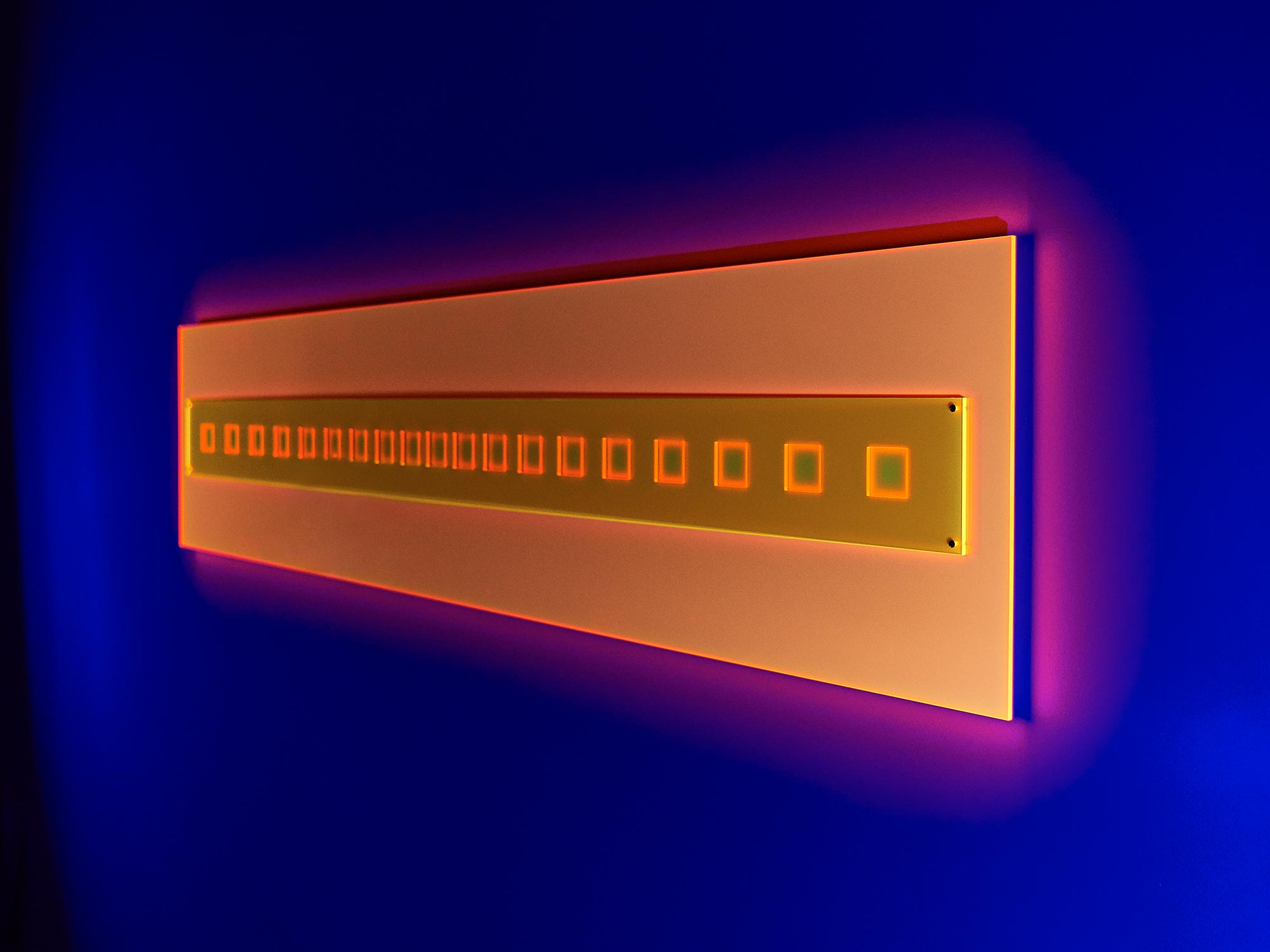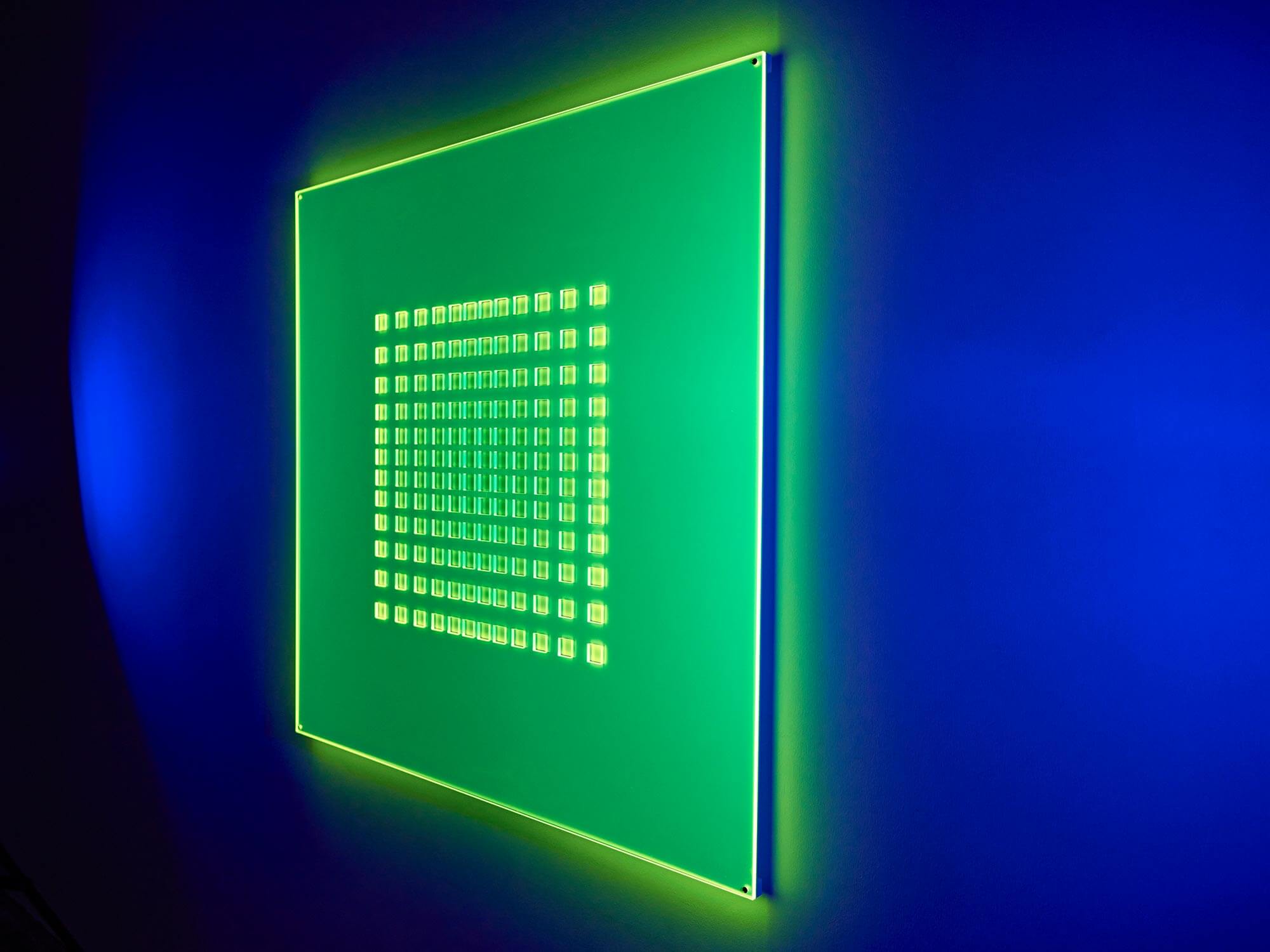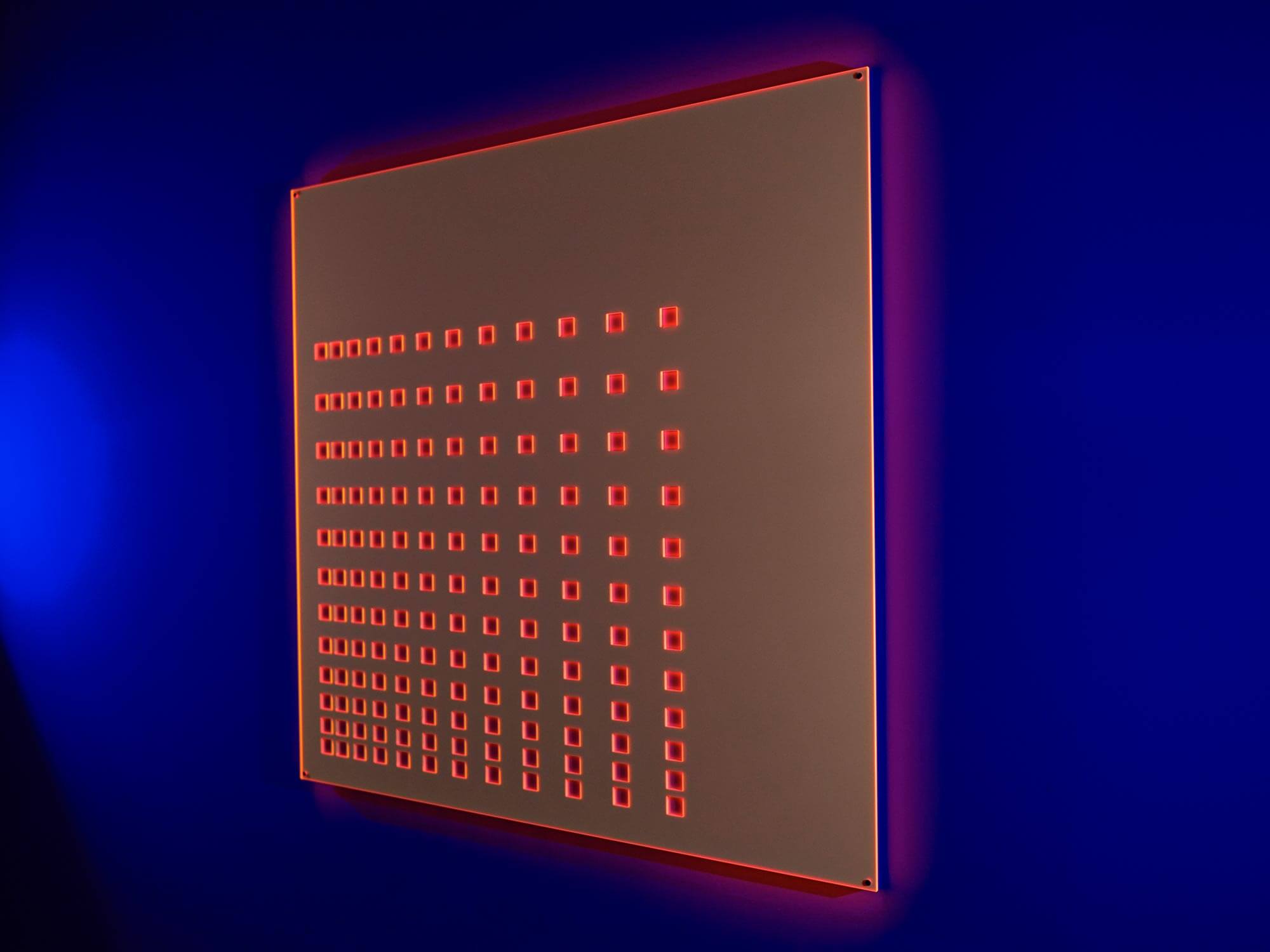
PHASE III
Acrylic glass
In my most recent works I have abstained from painting altogether. Coloured, in part opaque, in part transparent florescent surfaces are composed as a pictorial object with a clear arrangement. Bold colour contrasts alternate with fluorescent contrasting lines, and lead to a sense of movement and light. A playful communication between the different fields of colour emerges.



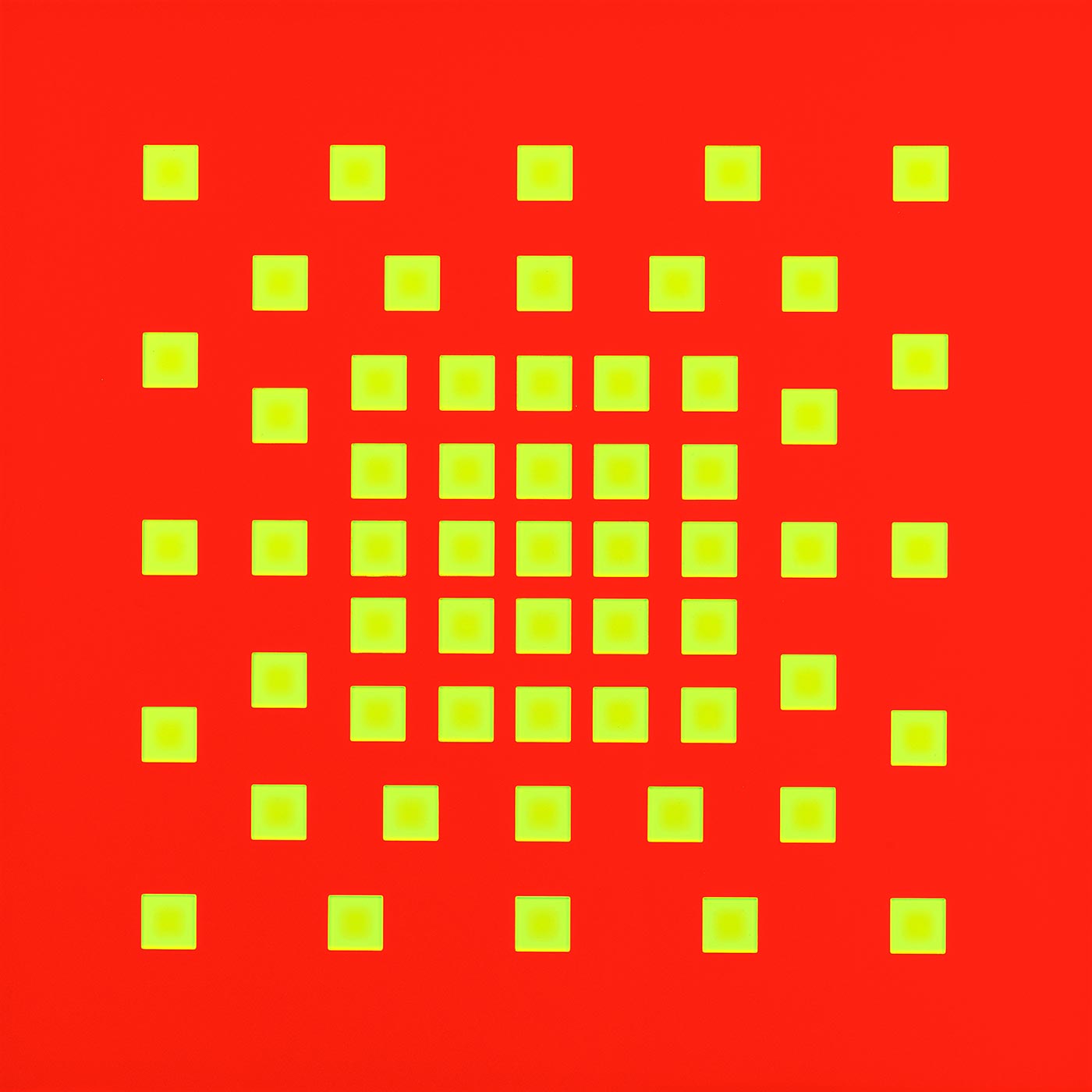
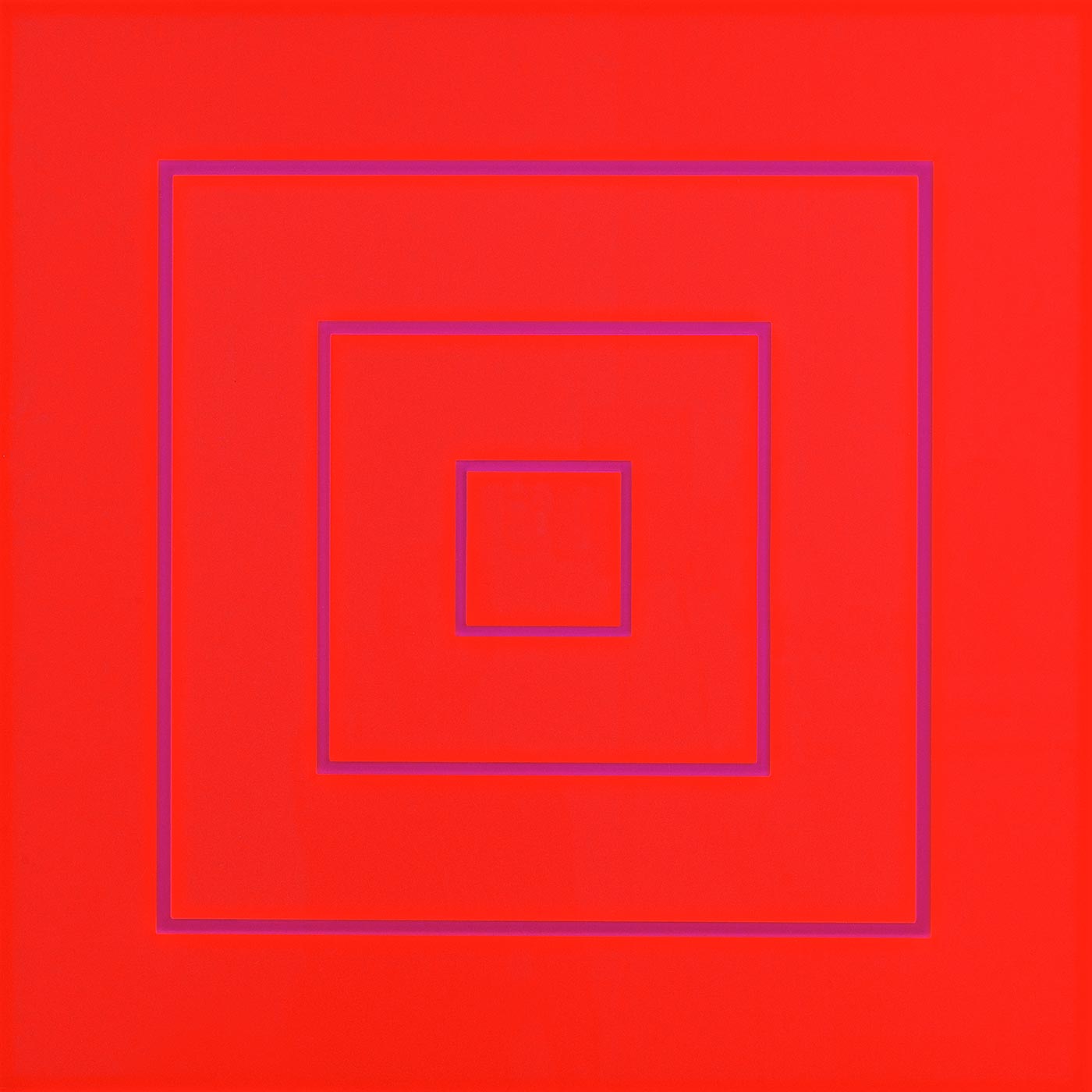

My boundless passion for colour in art was first inspired by the fascination I experienced for the sheer colourfulness of nature – above all, the indescribable impression that the chromatic energy as found in the tropics, both on land and under water, had on me.

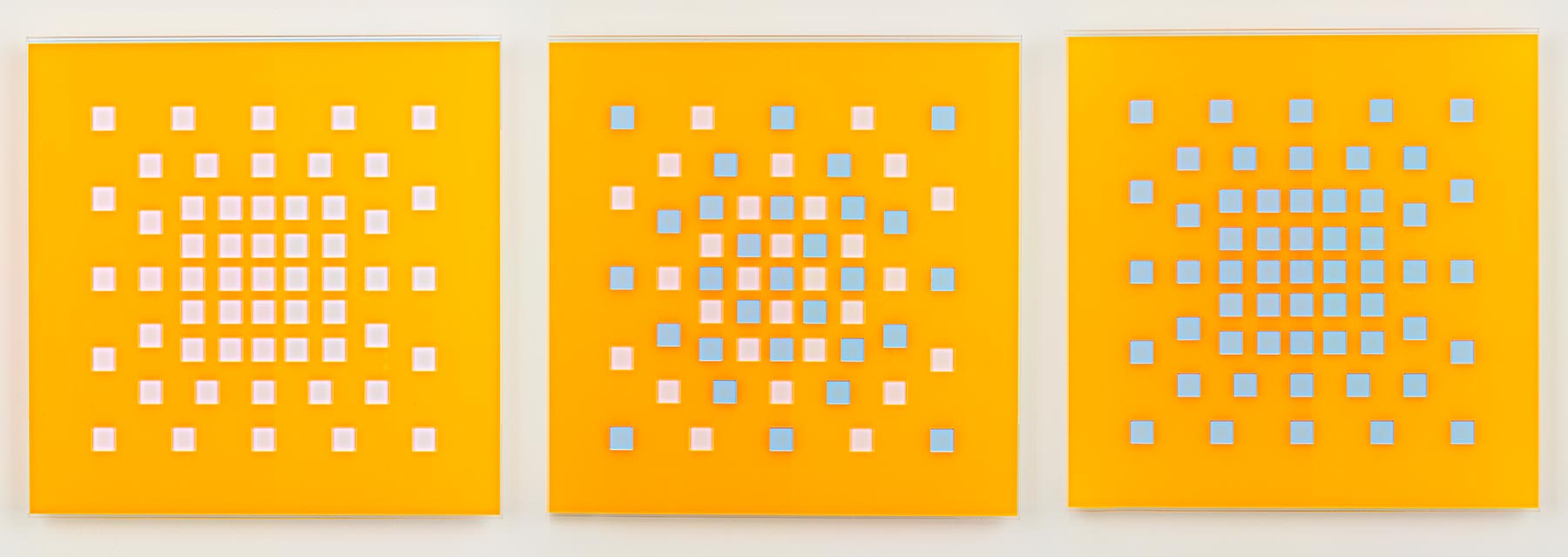

„For the painter and sculptress Ina von Jan, the exploration of colour, its perception and effects, its lucency and its intensity forms the focus of her artistic work. In her acrylic glass objects and installations she makes use of the optical effects of reflection, diffraction and refraction of light, colour and transparent material. Thus, even the outer edges of the object become a subtle pictorial field of action. An intense inner glow of the picture emerges, the formal austerity of the composition unfolds a tremendous sensuality.”
Citated from Dr. Thomas Elsen 2014
Art historian and Director of the Städtische Galerie für zeitgenössische Kunst in Augsburg

Winner of the 16th Fürstenfeldbruck-District Art Prize: The use of vertical colour planes and linear elements, in part opaque, in part transparent, form a pictorial whole composed in a clearly defined arrangement. Bold chromatic contrasts, primarily with red, alternate with fluorescent lines and evoke the sense of movement and light. A playful communication unfolds between varying chromatic fields.


Compositions of light
The perception of color
The juxtaposition of UV-light – an especially entertaining part of sunlight – and daylight in my series of works entitled “Compositions of Light“, demonstrates just how potent is the perception of the colour in each of the light types used.


… In contrast to the recent revival of colour-form-op-art-effects, Ina von Jan has resolutely devoted herself to the deepening of colour perception; in doing so – by concentrating on yellow, for example, – she has achieved wonderfully original results which have yet further accentuated her path in colour. She has thus opted for the third way and assists the colour with concurrent exploration in serviceable form. …
Citated from Prof. Eugen Gomringer, 2018, »Ina von Jan’s Experiments in the Light of Contrasting Initial Approaches«


